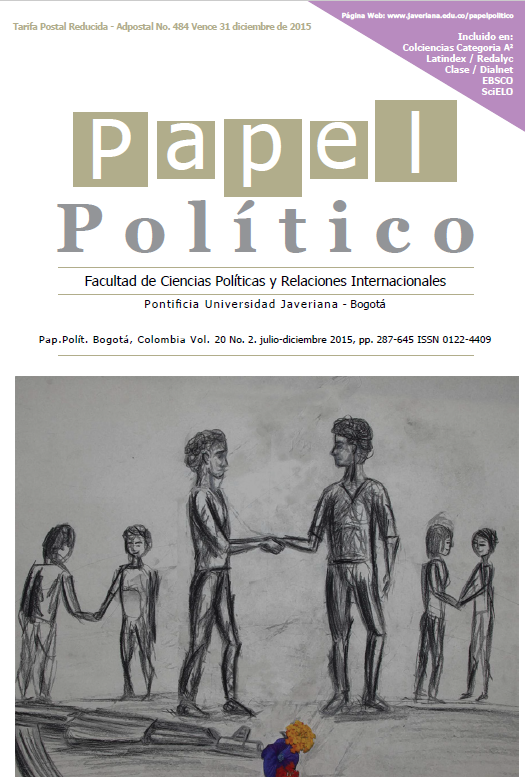Abstract
This article assesses the ways in which regional institutions, understood as norms and institutional bodies, contribute to the formation of collective identity in the Andean Community (AC). Departing from the previous existence of an Andean identity, grounded on historical and cultural issues, the paper takes three case studies to show the terms in which regional institutions contribute to the formation of three dimensions of collective identity in the AC, namely, the cultural, the ideological and the inter-group dimensions. The paper shows that although ideas of an Andean collective identity that state representatives and Andean General Secretariat (AGS) bureaucrats hold are very diverse, the AC institutional framework provides a strong basis for the emergence of collective identity among member states. Three explanations are provided in this regard: First, the benefits obtained from Andean norms and regional institutional organisms make states identify with the regionalist project and with each other. Second, regional organisms provide spaces for state interaction where state representatives learn from each other and identify between them. Third, the AGS operates as an independent agent that exerts pressure over member states to keep the pace of regionalism. The paper argues that these explanations account for an effect of ‘institutional inertia’ that has helped to maintain the AC regionalist project.
Esta revista científica se encuentra registrada bajo la licencia Creative Commons Reconocimiento 4.0 Internacional. Por lo tanto, esta obra se puede reproducir, distribuir y comunicar públicamente en formato digital, siempre que se reconozca el nombre de los autores y a la Pontificia Universidad Javeriana. Se permite citar, adaptar, transformar, autoarchivar, republicar y crear a partir del material, para cualquier finalidad (incluso comercial), siempre que se reconozca adecuadamente la autoría, se proporcione un enlace a la obra original y se indique si se han realizado cambios. La Pontificia Universidad Javeriana no retiene los derechos sobre las obras publicadas y los contenidos son responsabilidad exclusiva de los autores, quienes conservan sus derechos morales, intelectuales, de privacidad y publicidad.
El aval sobre la intervención de la obra (revisión, corrección de estilo, traducción, diagramación) y su posterior divulgación se otorga mediante una licencia de uso y no a través de una cesión de derechos, lo que representa que la revista y la Pontificia Universidad Javeriana se eximen de cualquier responsabilidad que se pueda derivar de una mala práctica ética por parte de los autores. En consecuencia de la protección brindada por la licencia de uso, la revista no se encuentra en la obligación de publicar retractaciones o modificar la información ya publicada, a no ser que la errata surja del proceso de gestión editorial. La publicación de contenidos en esta revista no representa regalías para los contribuyentes.


